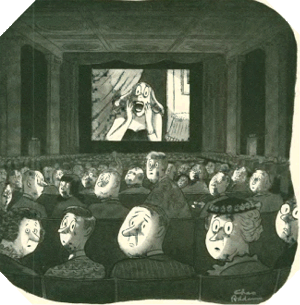Max Planck (1858-1947) pictured here presenting Albert Einstein (1879-1955) the Max-Planck medal in Berlin (1929). whose prescient and revolutionary notion of “quanta” arguably launched the whole mystical, radically new and innovative field of Quantum Mechanics, had this to say about the Darwinian-like evolution of new ideas:
"A new scientific truth does not triumph by convincing its opponents and making them see the light, but rather because its opponents eventually die and a new generation grows up that is familiar with it."
Einstein never wholly embraced the implications of this new field of physics, Quantum Mechanics ("God does not play dice"), curiously bearing out Planck’s observation.
It’s a sad historical note that Planck’s second son to whom he had been particularly close was implicated by the Nazis in the failed assassination plot of Hitler and died a horrible death at the hands of the Gestapo. Planck died a broken old man two years later at 89.



